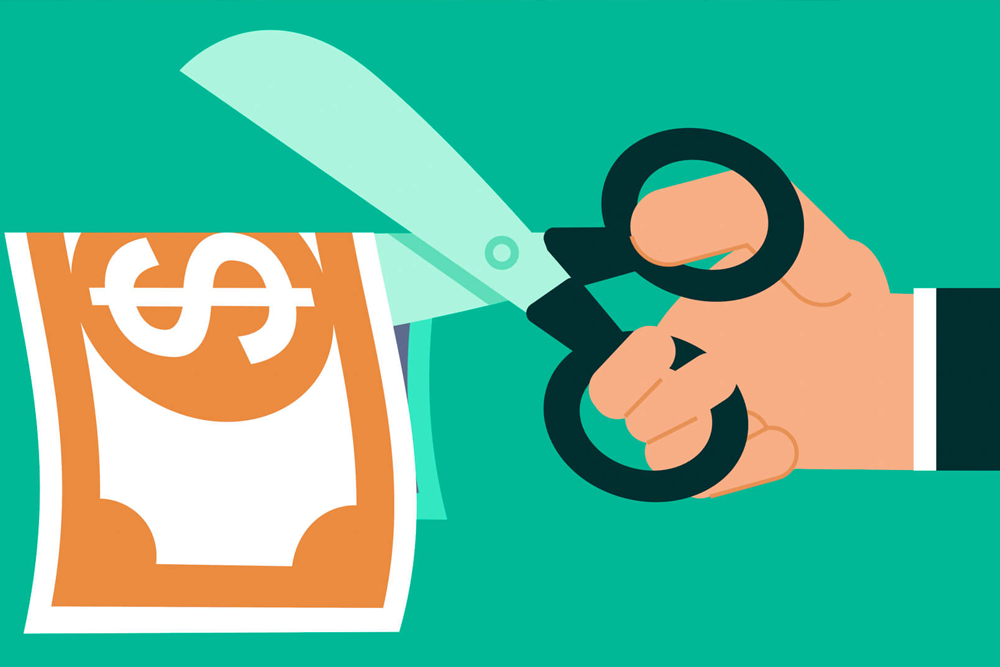
The Future Of Personal Finance: Hands-on Future Financial Apps
For most people today, especially those in younger generations, the financial future feels bleak. They work hard, earn a salary, deposit the money to the bank, and struggle as they use that money on expenses, all the while being dependent on their bank. Then, the bank just charges them an ATM fee. Most of us hate that. Possibly, you have been banking with your bank for your whole life. You have a love-hate relationship with your bank. But you do not want to be hassled with switching. Secretly, you are just lazy. You require an app for everything.
Besides, in an attempt to protect low-and middle-income customers, regulators inadvertently designed a skewed system where rich accredited investors have the tools at their disposal that are inaccessible to the rest. Capitalism can do better. We should let those who work hard and save responsibly to have control over their financial progress. This is a challenging problem of an entrenched and sophisticated system. Nonetheless, there is a silver lining.
The invention of bitcoin back in 2008 introduced an alternate financial system, based on decentralization and digital currency- a system that, in effect, does not depend on banks to offer to the bank. The present version of decentralized finances, or Defi, enables people to either use providers that offer specialized cryptocurrency- centered services, or use trustless systems where funds are sent to applications known as smart contracts that run on the blockchain.
Automation of future personal finances
Is there an app for laziness? It turns out there is!! Automation is at the core of the consumer FinTech race. FinTech startups are centered beyond ‘advising’ and ‘recommending’ towards ‘doing’- performing the task on behalf of consumers that offer financial value. Look at WealthFront, automating investments, and taking market share from online brokerages. Or Digit, automating savings and taking market share from national banks. Or even Paribus, automating price drop protection on consumer’s purchases, taking money back from large retailers. They all offer value without having you lift a finger.
Assisting lazy people is not the main goal-ultimately it is to even the playing field. Most people are not aware or do not know-how. Many do but do not have the time. Banks have made it hard to perform these activities on purpose- to increase the stickiness of their products and make extra revenue on financial advisors and brokers. And why do clients need to perform these tasks in the first place? We have plumbers, mechanics, and electricians, but when it comes to our finances, we keep beating our head against the wall. The average American should not be required to file taxes following an extremely sophisticated code. FinTech is doing to finance what household appliances did to the home: give back quality time. By automating difficult, mundane, or annoying tasks, FinTechs are offering consumers more peace of mind and time to spend doing meaningful things. Today countless applications are helping you automate savings.
Savings= Income (deduct) spending. Thus apps can either help increase income or reduce spending.
- Reduce spending: This is transactions multiply with the amount of each transaction.
- Increase income: Sum of investments, salary, rewards, rates, and savings
Setting aside income, the aim is to reduce spending in an automated way to eliminate user’s cognitive and time overhead.
People spend on the following:
- Needs: These are the things you need to live a basic life. They include public transport, food, health insurance, and rent.
- Wants: These are things you do not really require but make you happy to want them. They may include but not limited to Beats headphones, a trip to Thailand, or new clothes.
- Never wanted: These are things you do not want to pay and could have avoided paying, but you need to, such as parking tickets and late fees.
The purposes of FinTech players
Help clients reduce the price of what they pay
Decreasing the number of transactions needs leveraging competition and contracts. This can be done before or after the purchase before the purchase consumers can apply discount codes at checkout or find cheaper products. While after the buy, the players can negotiate on behalf of the clients, getting money back when the price drops.
But fewer want to have enough money for needs
Whereas many startups are in the cost reduction space, few are trying to make you not purchase. Most apps focus on spending history and trends, comparing you against your past self or even peers to point you in the right direction. The second strategy is budgeting. Safe to spend functionalities, if done correctly, are useful to the user who simply does not know how much she can afford.
Helps clients reduce their ‘never wanted’
No one likes paying interest and fees. Still, customers settled $17 billion in NSF fees and overdraft in 2015, following the Center for Responsible Lending. No one likes having to front money for a mistake. And mistakes occur. Apps can assist.
Here is how:
- Offering better products. Chime has free overdrafts and ATMs. A simple credit card has no charges.
- Offering services to assist you to avoid never wanted. Pays down your debt automatically and tally refines while Cushionai negotiates down your fees.
- Make sure you have adequate coverage. Cross-sell valuable insurance. Trim does this well.
Personal Financial Apps
Acrons
The original round-up application, for $1 a month. Acorns move additional pennies from your credit and debit card purchases into investment portfolios of ETFs. For $2 a month, Acorns add an IRA. For $3 per month, adds IRAs, checking and debit card. The novel for 2020: Invest and Save straight from your paycheck.
Albert
Promising Genius support and good focus on financial health Albert app have lots of room to improve UX. It has features such as saving, financial genius, bill negotiation (known as Overpayment protection), saving, and alerts.
Affirm
This app provides consumers instant fixed rate-point-of-sale loans when they check out online at participating merchants. Generally, loans last from three, six, or twelve months, with no fees and a ten percent to thirty percent annual percentage rate, based on a borrower’s credit score and other data. (Choose retailers, like Peloton, subsidize particular zero percent loans). Mobile applications rolled out last October enables users to pre-qualify for Affirm financing and then shop anywhere.
Chime
Digital bank Chime provides no-fee checking accounts with the alternative to automatically round up purchases and deposit the change into savings accounts. The mobile-only bank provides a debit card, fee-free overdraft protection of up to $100, and access to paychecks up to two days early.
Clarity money
Clarity money is a slick app packed with free, valuable functionalities but limited in terms of continuous engagement. It comes with features such as: Spending analysis, a summary of cash versus debt, credit score monitoring, bill negotiations (canceling), credit card utilization monitoring, and automated savings with Marcus and Acronis.
Trim
Trim is a chatbot mostly centered on bill negotiations and alerts, however expanding in many directions. Trim comes with features such as: Saving, alerts, budgeting, debt payoff, Bill negotiation( phone, insurance, energy, internet), insurance (through lemonade).
Credit karma
The original free credit score and credit monitoring have expanded its offering to comprise free online tax filing and, most current, high-yield savings accounts. Credit karma earns fat referral charges for users who bite on its recommendations for personal, credit cards, home, and auto insurance or auto loans.
Upstart
An online lending app that uses Artificial Intelligence and alternative data like education and employment history, together with conventional credit score and income information to underwrite personal loans. Upstart reports seventy percent of its originations are automated and that its approach enables it to hold down losses whereas lending to those with a mediocre credit score.
Propel
Propel is afresh EBT mobile application that allows food stamp recipients to check their balances without having to call a toll-free number. It also enables them to electronically clip store coupons, connect to social services, and search job postings.













